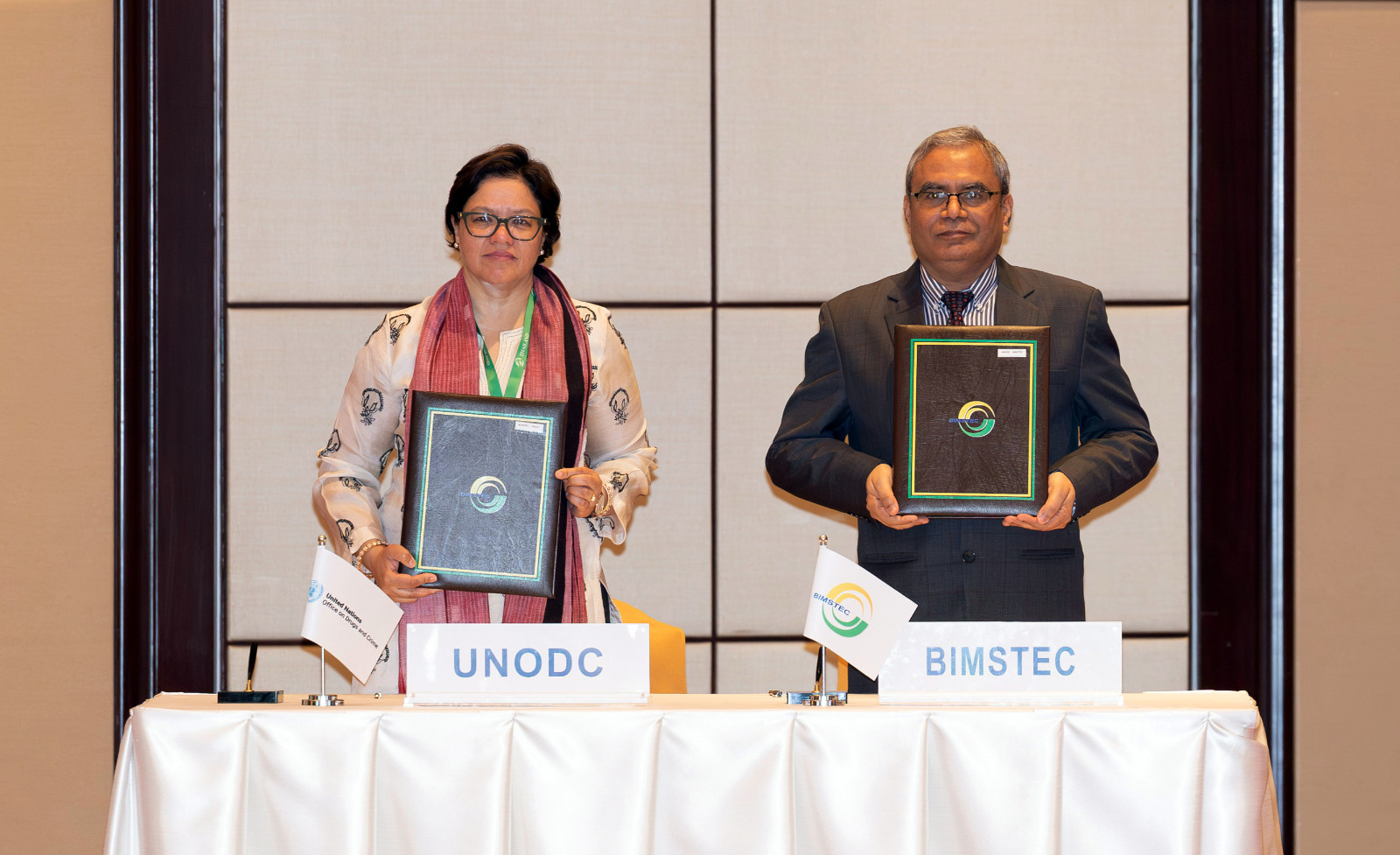News Flash
News Flash

DHAKA, April 6, 2025 (BSS) - The Bay of Bengal Initiative for Multi-Sectoral
Technical and Economic Cooperation (BIMSTEC) and the United Nations Office on
Drugs and Crime (UNODC) has signed a Memorandum of Understanding (MoU) to
jointly address the pressing non-traditional security concerns in the region
and beyond.
The MoU was signed on the occasion of the Sixth BIMSTEC Summit held on April
4 in Bangkok, Thailand, said a press release issued by the BIMSTEC
secretariat in Dhaka today.
BIMSTEC Secretary General Indra Mani Pandey and Regional Representative of
UNODC Regional Office for South Asia Anubha Sood inked the MoU on behalf of
their respective organisations.
The signing of the MoU was welcomed by the BIMSTEC leaders, marking a
significant step in deepening inter-regional cooperation, said the release.
The MoU formalized the future partnership between UNODC and BIMSTEC in areas
of shared interest, providing a framework of cooperation in facilitating
collaboration to prevent and combat transnational organized crime, illicit
drugs and terrorism in the Bay of Bengal region, it added.
BIMSTEC comprises seven countries-- Bangladesh, Bhutan, India, Myanmar,
Nepal, Sri Lanka and Thailand-- of the Bay of Bengal region.
It pursues regional cooperation in seven broad sectors-- agriculture and food
security, connectivity, environment and climate change, people-to-people
contact, science, technology and innovation, security and trade and
investment and development.
The cooperation also covers eight sub-sectors-- blue economy, mountain
economy, energy, disaster management, fisheries and livestock, poverty
alleviation, health, and human resource development.
UNODC is the UN entity mandated with addressing the challenges of drugs,
organised crime, corruption and terrorism.
It helps the governments implement international treaties, monitor global
developments, and design effective laws, policies and interventions.
UNODC is present in around 150 countries, where it trains practitioners in
justice, health, law enforcement, and other fields.